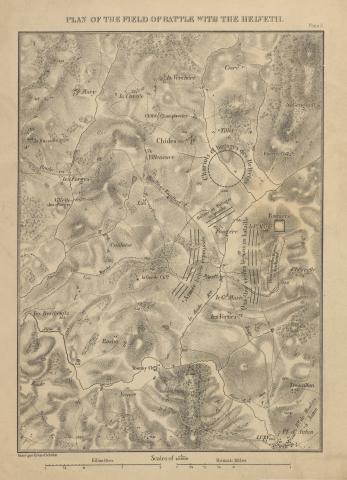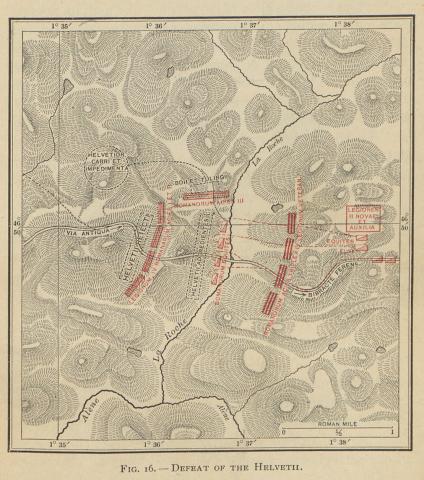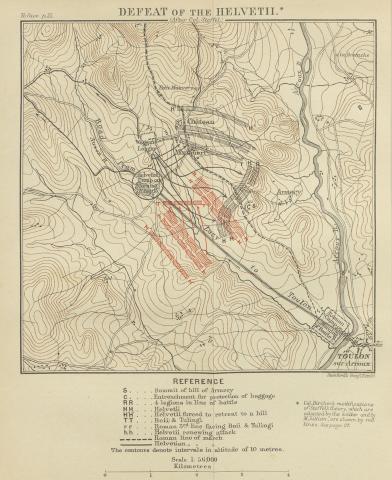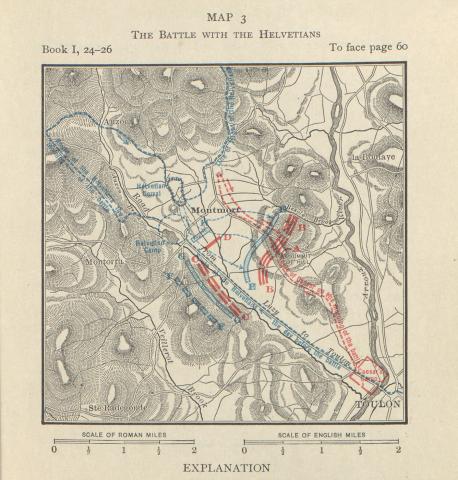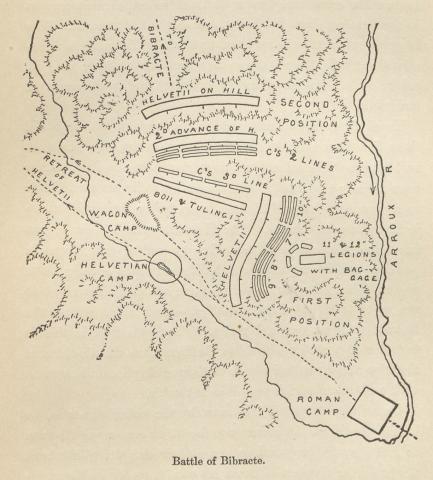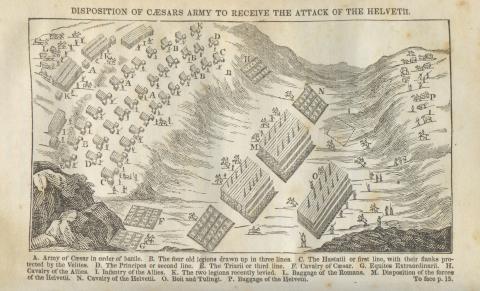postrīdiē: adv., on the next day, the day after.
quod: conj., that, in that, because, since; as to the fact that: the fact that.
omnīnō: adv., wholly, entirely, utterly; in all; only; at all.
bīduum, -ī n: period of two days, two days.
mētior, mētīrī, mēnsus m.: measure, measure out.
Bibracte, -tis, n.: Bibracte, the chief town of the Aedui, situated on Mont Beuvray.
cōpiōsus, -a, -um: abundantly supplied, rich.
passus, -ūs m.: step, pace; double step (five Roman feet); mīlle passūs, mile; duo mīlia passuum, two miles. See mīlle.
duodēvīgintī (xviii): indecl. adj., eighteen.
frūmentārius, -a, -um: of grain; abounding in grain, fertile; rēs frūmentāria, grain-supply, provisions.
prōspiciō, -spicere, -spexī, spectus: look forward; watch, provide, use foresight.
Helvētius, -a, -um: Helvetian; as subst., m., a Helvetian; pl., the Helvetii, a rich and powerful tribe, whose country was nearly the same as modern Switzerland.
āvertō, -vertere, -vertī, -versus: turn away, turn aside, avert; alienate.
contendō, -tendere, -tendī, -tentus: strain, exert oneself; strive for, attempt, try; hasten, press forward; contend, vie; join battle, fight, quarrel; insist; demand.
fugitīvus, -a, -um: fugitive; as subst., m., runaway, deserter.
Lūcius -iī m.: Lucius (name) abbreviated "L."
Aemilius, -ī, m.: Aemilius, a Roman nomen; Lucius Aemilius, probably an enfranchised Gaul, decurion of cavalry in Caesar', army.
decuriō, -ōnis m.: decurion, commander of a troop of ten horsemen. See Introd., p. 38.
Gallus, -ī, m.: Gallus, a Roman cognomen; see Trebius.
nūntiō, -āre, -āvī, -ātus: bring news; announce, report, relate; command.
perterreō, -terrēre, -terruī, -territus: frighten thoroughly, fill with terror; perterritus, -a, -um, panic-stricken.
prīdiē: adv., on the day before.
interclūdō, -clūdere, -clūsī, -clūsus: shut off, cut off, hinder, prevent.
cōnfīdō, -fīdere, -fīsus: have confidence in, rely upon, trust, believe; hope.
commūtō, -āre, -āvī, -ātus: change wholly, alter; exchange, replace.
nostri -orum m.: pl. our men
īnsequor, -sequī, -secūtus: follow on, follow up, follow closely, pursue, press upon.
lacessō, lacessere, lacessīvī, lacessītus: provoke; challenge, harass, attack.

